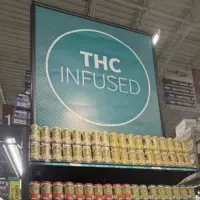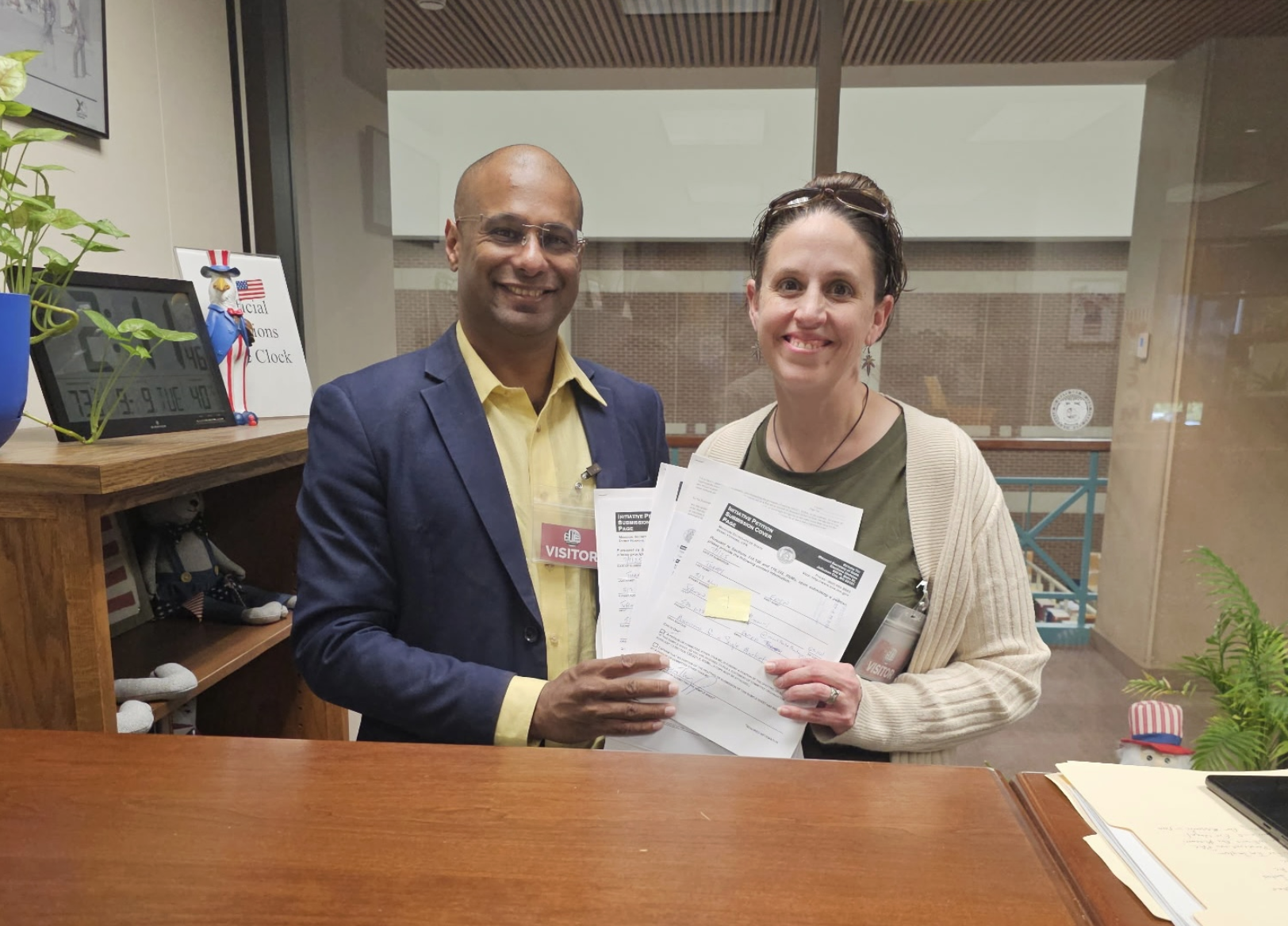
BY: REBECCA RIVAS
Missouri Independent
The effort would repeal the 41-page constitutional amendment that legalized recreational marijuana in 2022.
A coalition of Missouri hemp business leaders and advocates formally filed four initiative petitions Tuesday that would ask voters to allow marijuana and intoxicating hemp products to be sold in the same stores as alcohol and tobacco.
The goal of the effort, led by Kansas-City-based hemp business American Shaman, is to repeal the 41-page constitutional amendment that legalized recreational marijuana in 2022.
Each version of the proposed initiative petition would replace the marijuana legalization amendment with language that instructs Missouri lawmakers to create regulations that are “no more burdensome than what we already have for alcohol and tobacco,” said Eapen Thampy, a longtime hemp lobbyist.
“Marijuana and hemp are one plant,” Thampy said in an interview Tuesday. “They should be regulated in the same way. It should be a free, fair and regulated market.”
The effort is being organized under a new political action committee called Missourians for a Single Market.
The four petitions differ slightly, but they each would take out criminal offenses for possessing too much marijuana. They’d also retain the current taxes on the products for at least the next 10 years, and allow businesses to obtain licenses to sell the products through a similar process as they do with alcohol and tobacco products.
Currently marijuana facility licenses are limited and highly regulated, but businesses don’t need a license to sell intoxicating hemp products — despite numerous legislative attempts to outright ban them.
“Legislative efforts to ban hemp products allow the illegal market to flourish,” said Gary Wiegert, a retired St. Louis City police sergeant, in the group’s Tuesday press release announcing the initiative petition campaign. “Regulating these products and preserving legal access to the market ensures public safety by allowing business owners to serve the consumer market instead.”

In many ways, it’s the latest showdown between the marijuana industry, which has operated legally in Missouri since 2018 but is still outlawed federally, and the hemp industry, whose products were legalized by the 2018 Farm Bill.
At the end of the day, what’s the difference between intoxicating hemp products and intoxicating marijuana products?
Hemp and marijuana are essentially terms the government uses to distinguish between the part of the cannabis plant that has high amounts of THC, or their psychoactive component.
Any part of the plant containing 0.3% or less THC by dry weight is defined as hemp. And that’s why in 2018 Congress removed hemp and hemp seeds from the Drug Enforcement Administration’s schedule of controlled substances as part of the Farm Bill.
Cannabis buds – or what the industry calls “flower” – must be smoked or heated to release Delta-9 THC that produces a high.
So eating most raw cannabis flower shouldn’t get someone high.
There is a growing legal argument that marijuana sold in dispensaries that doesn’t contain .3% Delta-9 THC before it’s smoked or heated is actually hemp.
Currently, a number of Missouri cannabis events – where people are selling weed outside of dispensaries – are operating under this interpretation of the federal definition.
The initiative petitions filed Tuesday support this interpretation.
The effort also aims to regulate products, such as edibles, beverages and vapes, that are currently being sold in gas stations and stores without any testing or tracking requirements. The lack of state regulation has led some municipal governments to try and find a way to regulate them through city health departments.
“Our position is that marijuana legalization has always been not about getting ‘high’ but to end prohibition against one of the most beneficial plants on earth,” said Tim Gilio, founder of the Missouri Marijuana Legalization Movement. “Our goal is to open up a free and open market to all and prevent a monopoly from encroaching on any benefits of the cannabis plant.”
However, Andrew Mullins, executive director for the Missouri Cannabis Trade Association, told The Independent in June that the idea is a “bait and switch.”
The state’s regulated marijuana industry, he said, generated $241 million in state and local tax revenues last year alone and is regarded as one of the most successful marijuana programs in the country, citing a Wall Street Journal article. At a marijuana industry conference last week, company leaders agreed that limited licenses for dispensaries and grow facilities was key to Missouri’s success.
Voters have twice voted for cannabis regulation, Mullins said in June, and any effort to roll back those constitutional protections would be a “spectacular failure.”
“Missourians aren’t about to take hundreds of millions away from local communities, veterans and our justice system, all in hopes that politicians will eventually replace it with something down the road,” Mullins said.
Thampy said that tax revenue wouldn’t go away. The taxable market would increase by about a third, he said, “meaning tens of millions in new revenue for public defenders, substance abuse prevention, and the Missouri Veterans Commission.”
The petitions were filed with the Missouri Secretary of State on Tuesday afternoon. The group aims to get enough signatures by May to appear on the November 2026 ballot.


